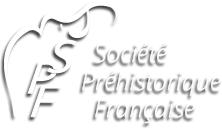 Actualités
Actualités 
Congrès, colloques, réunions - Appel à contributions / Call for papers
8-11 septembre 2021
Kiel
 Session 231 - 27th Annual Meeting of the European Association of Archaeologists : Widening Horizons
Session 231 - 27th Annual Meeting of the European Association of Archaeologists : Widening Horizons
The strange times we are living in are showing us how quickly humans can adapt to change. Keeping in mind that transformations are most likely a constantly occurring aspect of human life we want to ask: How was change in prehistory? Was it perceptible on a human scale? Were past communities able to readjust and reinvent themselves in the face of adversity?
These, and other questions, are particularly applicable to the fluctuations that occur during the transition between the 3rd and 2nd millennium BC, a period marked by cultural shifts archaeologically visible throughout Europe. Transformative processes in populational dynamics, mobility practices and material exchange networks have been in the spotlight for quite some time. The Iberian Peninsula in particular functions as an excellent example for this development whereby a plethora of prehistoric contexts may indicate different socio-political trajectories. Adding to that, the existence of multiple ongoing long term projects in key sites (as ditched enclosures) has allowed the application of new methodologies like research on ancient DNA, paleoclimatic reconstructions and mobility studies (mainly through isotopic analysis) that have made the Iberian Peninsula a stage on which current theoretical backgrounds are being questioned.
As such, there is a pressing necessity to confront, match and reconcile new sets of data and the archaeological evidence not only in Iberia but also throughout the rest of Europe, allowing to rethink and update theories and biographic narratives that will contribute to a possibly closer grasp on the lifeways of prehistoric communities.
For this session, we invite presentations dealing with change in European contexts of the 3rd/2nd millennium BC in order to stimulate comparisons between different theories and methodologies. We would also appreciate input from archaeological science researchers (aDNA, mobility, demography).
Eventually, we intend to provide new insights to the prehistoric lifeways, based on solid interpretive hypothesis.
Main organiser:
Ana Catarina Basílio (Portugal)
Co-organisers:
Paula Becerra Fuello (Spain)
Jan-Eric Schlicht (Germany)
Call for oral and poster contributions is now open - deadline for submitting an abstract is 11 February 2021
Via Ana Catarina Basílio




